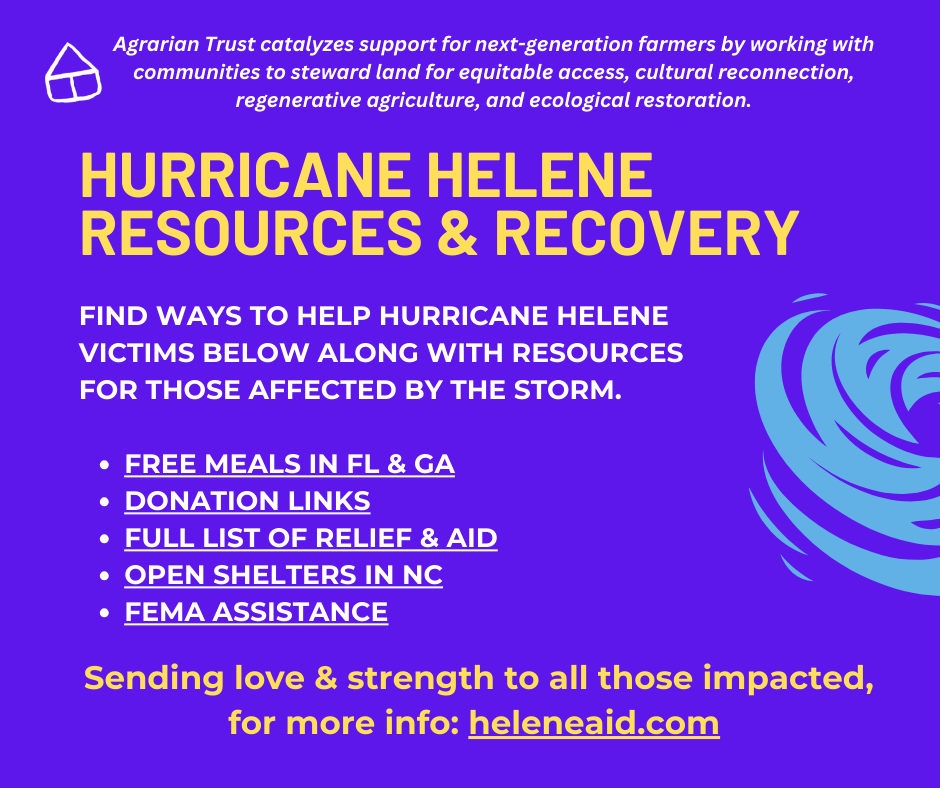From garynabhan.com
One might wonder whether any 21st century preoccupation with agrarian values, agrarian ecology and agrarian ideals comes as too little, too late. Less than two percent of the North American public lives in rural areas outside towns, cities and suburbs, and less than half of the world’s population now lives outside cities. But the New Agrarianism which is emerging globally is not restricted to the rural domain, nor is it necessarily a romantic desire to re-enact social behaviors and morays associated with rural populaces in by-gone eras. Instead, a New Agrarianism is emerging within urban as well as rural communities, and may indeed be the set of values and operating principles which can obliterate the rural-urban divide which in many ways characterized and crippled North American and European cultures during the second half of the Twentieth century. But what exactly does agrarian mean? Why are the concepts associated with it being used once more as rallying cries, decades after most global citizens have become disenfranchised from the land? Finally, why has “agrarian ecology” become a useful focus for anthropologists, biologists, demographers, geographers, historian and land tenure lawyers that has been applied to solving problems in at least a dozen countries on four continents?
If we return to its entomological roots, agri- can be traced as far back as the proto-Indo-European noun *h₂éǵros, which has cognates not only in Old English, but in Ancient Greek, Latin and Sanskrit as well. As used over the centuries in Europe and England, this term refers to a constellation of activities, values and premises regarding human relationships to cultivated soil or to the land in general. As a prefix in Latin, and then Old, Middle and Modern English, ager- and agri- relates to soil, fields, farms, land, terrain, landscape, territory, and country. In the related term agriculture, based on the Latin ager + colere, we see the relationship between humans and the land circumscribed by the activities and values of cultivating, tilling, stewarding, tending and safeguarding.Agrarian ecology, as articulated by agricultural anthropologist Robert McC. Netting in 1974, is the study of both the social and legal frameworks with guide tenure to and the human uses of cultural “working” landscapes, and the interactions between human communities and their agricultural and ecological resources in the landscapes.
Agrarianism, of late, has come to embody a nuanced set of social, political and ecological values which see rural activities, behaviors and ethics as functioning on a higher order than urban or suburban-derived comparables. However, for well over a century, the phrase agrarian reform has had broader recognition in Latin America, Europe and Asia as a movement to keep peasant societies from becoming increasingly landless and in greater servitude to capitalistic institutions by enacting the redistribution of land and other wealth. Agrarian ecologists such as Netting and Ostrum have paid particular attention to how peasant societies resist such extractive institutions and organize themselves to protect, sustain and efficiently use the natural resource base and traditional knowledge upon which their members’ livelihoods depend.
In a very real sense, agrarian values place heightened importance on the daily human commitment to and privilege daily involvement in rural lifeways as God-given responsibilities. Accordingly, Thomas Jefferson is often attributed as the best early articulator of American agrarian values, while Henry Wise Wood, Louis Bromfield, Ralph Borsodi, Robert Swann, Wendell Berry, Wes Jackson, Helen Nearing and Will Allen are granted status as the most elegant contemporary North American defenders of agrarian values in the face of agricultural industrialization and ex-urban growth. However, agrarian values are not exclusively Euro-American or even Christian, for Marxist materialists around the world have come to embrace spome of the same principles and strategies for valuing the work done by peasant farmers. As eloquent as Jefferson and Berry European voices such as Jean Giono and John Berger, Japanese farmer Masanobu Fukouoka and Austrailian permaculturist Bill Mollison.
Because Twentieth Century agrarian proponents such as Canadian Henry Wise Wood, Japanese Masanobu Fukuoka and American Wendell Berryhave often been diagnosed by urban critics as being afflicted with a nostalgia-emitting dysfunction that has symptoms of being “anti-urban,” “luddite,” or “retro,” some proponents such as Eric Freyfogle and David Walbert call their philosophies Neo-Agrarian. On his populist website, www.newagrarian.com, Walbert offers a brilliant articulation of the how new agrarianism can be distinguished from other forms of agrarianism that may be flawed by romanticism or nostalgia:
“New Agrarianism, most importantly, is not about preserving a way of life or recreating the past; it is about building the future. [Its] principles draw heavily on past expressions of agrarian thought, from ancient Greece to twentieth-century America, but they are not bound by them. Agrarians have few models but the past, and the past is valuable for the lessons it teaches, but each of us must live in the present and plan for the future.”
“New Agrarianism is about creating a new kind of rural community, one that is genuinely rural but that is fully a part of twenty-first century American society. The old ways don’t work any longer, as mid-size farmers and residents of dying towns have been slowly recognizing for decades. Large-scale commercial farms apply an industrial model to agriculture that is destructive to rural culture and community.”
“Sustainable agriculture is a beginning, but New Agrarianism is about more than agriculture. It is about a search for sustainable community, sustainable culture, sustainable life. A New Agrarian may not be a “family farmer” nor a full-time farmer, or even a farmer at all. Agriculture is not the only possible expression of agrarian values; many forms of craft or community building could be thought of as agrarian.”
“No philosophy can succeed if it applies only to a small minority within a society, and New Agrarianism is about deep, broad, long-term change. We live in a society that is majority urban, and is likely to remain so for the foreseeable future. New Agrarianism, creatively interpreted, could apply equally well to life in the city — to any life, in fact, that values connections with nature, with place, and with community.”
And yet, David Walbert, David Orr, Will Allen and others concur that “an agrarian believes in, if not the primacy, then at least the uniqueness of agriculture among human endeavors.” Activists David Hanson and Eric Marty, co-authors of Breaking Ground: Building an Urban Farm Revival, believes that agrarian values and practices should and can be expressed in urban, suburban and ex-urban settings as well as in rural landscapes. Youth groups such as FarmFolk/CityFolk, the National Young Farmer’s Coalition and Greenhorns are moving such agenda forward as a social movement that now crosses international boundaries. In their view, a foodscape is no longer (and has actually never been) a place beyond the city’s limits, and the quest for just, equitable and sustainable food systems and environmentally healthy foodsheds must engage both rural and urban dwellers of all races, classes and languages with equal strength. The fact that over 2500 acres of Metro Detroit’s 6500 acres of formerly built-upon and abandoned urban lots are once again producing food is testament to the survival of agrarian values in an urban setting.
Finally, it is worth noting that agrarian and neo-agrarian advocates link themselves to an unbroken chain of prophetic voices which have critiqued excessively urban, inward-looking and narcissisitic values of those who have become indifferent to the plight of farmers, fishers, ranchers, and foragers and to the land itself. In theologian Ellen Davis’s finely-researched book, Scripture, Culture and Agriculture: An Agraroan Reading of the Bible, it becomes historically clear that agrarian voices have risen up as prophets, dissidents and agents of change whenever urban hierarchical or industrial societies have become too excessive in their consumption, waste and hegemony over others. Davis deftly links the messages and methods of the Old Testament Prophets with modern-day agrarian voices from many countries.
On the academic or scholarly level, it is surprising that biologically-trained ecologists are among the least engaged in the documentation and application of agrarian ecology (sensu Netting) compared to geographers, anthropologists, agro-ecologists and rural sociologists. There are, of course, exceptions among broad-based natural scientists such as Mexican Victor Toledo, Chilean Miguel Altieri, and Indian Vandana Shiva, who have trained hundreds of students to apply a broader perspective to ecological issues in food producing landscapes. Anyone who still believes that Agrarianism is something of the past should spend a day with “greenhorns,” some of them who are now associated with Via Campesina, Slow Food International, or various young farmers’ coalitions and permaculture guilds. Be assured that you will be both tired and fulfilled at the end of one long but fruitful day with them.
__________________
Gary Paul Nabhan is an Ecumenical Franciscan brother and orchard-keeper of Spanish heirloom fruit and nut varieties on five acres at his home in Patagonia, Arizona. He also serves as the Endowed Chair for Borderlands Food and Water Security of the University of Arizona’s Southwest Center, which recently co-hosted the first-ever Border Food Summit. He is the author of one book of poems (Creatures of Habitat, Tangram Press) and twenty-five books of creative non-fiction, largely about sustainable food and agriculture. His newest book of essays, Desert Terroir, links natural history, agricultural history and food history in the Southwest borderlands. It is available from the University of Texas Press. See www.garynabhan.com for more of his writing.





